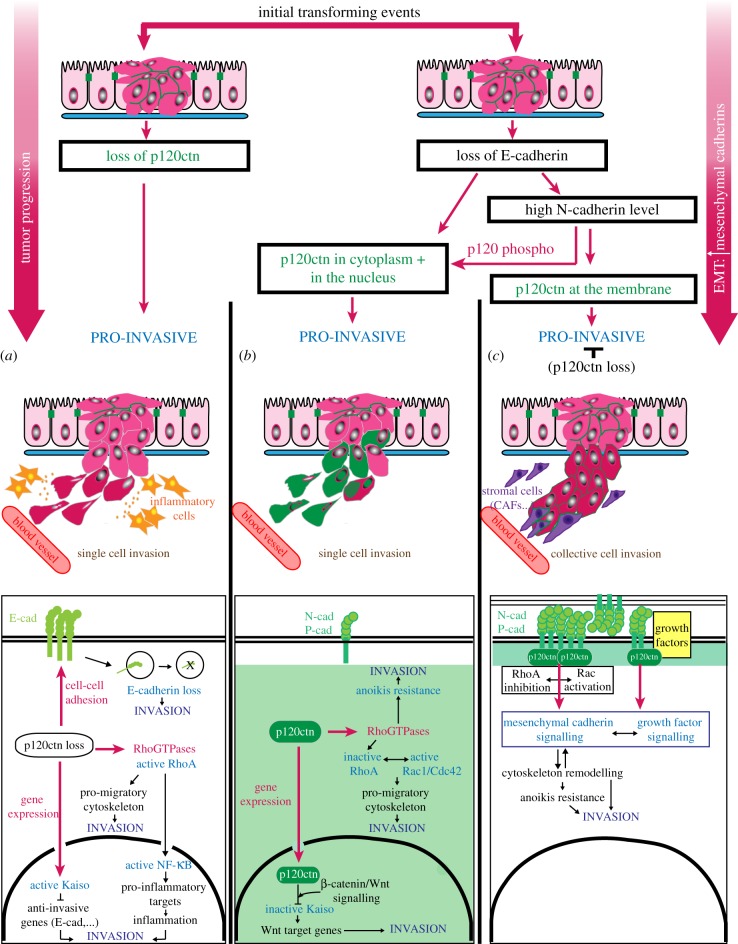Figure 3.
p120catenin alterations in cancer and their impact on tumour invasion. After the initial transforming events ending up with unpolarized epithelial cells and a relatively organized tumour mass (dark pink cells), the loss or mislocalization of p120catenin promotes tumour invasion (red, green cells) through different pathways depending on the precise timing and the nature of the alteration. (a) If the loss of p120catenin occurs before the loss of E-cadherin, then it promotes invasion by enhancing single cell invasion as a result of (i) E-cadherin internalization and degradation, (ii) misregulation of Rho-GTPases that activates NF-κB to trigger pro-invasive inflammation and remodel the cytoskeleton, and (iii) the interaction of p120catenin with Kaiso and the repression of Kaiso tumour suppressive/anti-invasive target genes. (b) If E-cadherin is altered before p120catenin, two possibilities exist depending first on the advance of the epithelial-to-mesenchymal transition (EMT) and the amount of mesenchymal cadherin produced, and second on the context-dependent phosphorylation of p120catenin. If the level of mesenchymal cadherin is insufficient or if p120catenin is phosphorylated (p120 phospho) on the tyrosine sites highlighted in figure 1, p120catenin relocalizes away from the plasma membrane to the cytoplasm and in rare cases to the nucleus (the green colour indicates the probable localization of p120catenin). As in (a), once in the cytosol, p120catenin can induce migration by regulating the cytoskeleton and participating in anoikis resistance. In the nucleus, and in the presence of active Wnt/beta-catenin signalling, p120catenin interacts with Kaiso and inhibits its repressive role on Wnt target genes expression. As a result it promotes the pro-invasive Wnt signalling. (c) If p120catenin is not phosphorylated and its interaction with the mesenchymal cadherin stabilized, p120catenin can remain at the plasma membrane. Therefore, p120catenin sustains mesenchymal cadherin signalling by regulating Rho-GTPases and mediating growth factor signalling. The functions of p120catenin at the plasma membrane may then favour collective cancer cell invasion by stabilizing mesenchymal cadherin-mediated contacts with stromal cells such as cancer-associated fibroblasts (CAFs, shown in blue). Note that these three different situations (a–c) can happen simultaneously within a tumour with only patches of p120catenin null or cytoplasmic p120catenin cells.

